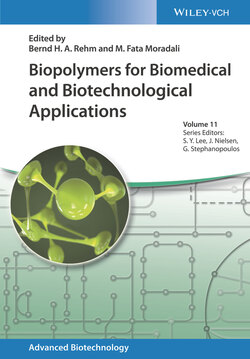Читать книгу Biopolymers for Biomedical and Biotechnological Applications - Группа авторов - Страница 43
Anti‐inflammatory Activity
ОглавлениеEPS produced by microalgae species such as Porphyridium, Cyanobacterium aponinum, Phaeodactylum tricornutum, and Chlorella stigmatophora have been reported to have anti‐inflammatory properties associated with their immunomodulatory activity. Both polysaccharides from P. tricornutum and C. stigmatophora had anti‐inflammatory activity in the carrageenan‐induced paw edema test. P. tricornutum enhanced phagocytic activity both in vitro and in vivo, while C. stigmatophora showed immunosuppressant effects [69]. Sulfated polysaccharides from red microalgae Porphyridium inhibited the migration and adhesion of polymorphonuclear leukocytes in vitro, which seems to be related to the in vivo anti‐inflammatory effect of the polysaccharide that also inhibited cutaneous erythema in human subjects, as leukocyte migration to the site of injury contributes to the production of NO and cytokine release, resulting in the inhibition of over‐inflammation [39]. Furthermore, EPS from C. aponinum, a cyanobacteria from Blue Lagoon ecosystem (Iceland), affected human DC maturation in vitro, leading to the secretion of immunosuppressive cytokine IL‐10 and consequent stimulation of T‐cell differentiation with a decreased Th17 but increased Treg phenotype. These results suggested that EPS from C. aponinum might be related to the beneficial effects on psoriasis observed in patients bathing in the Blue Lagoon [70].
